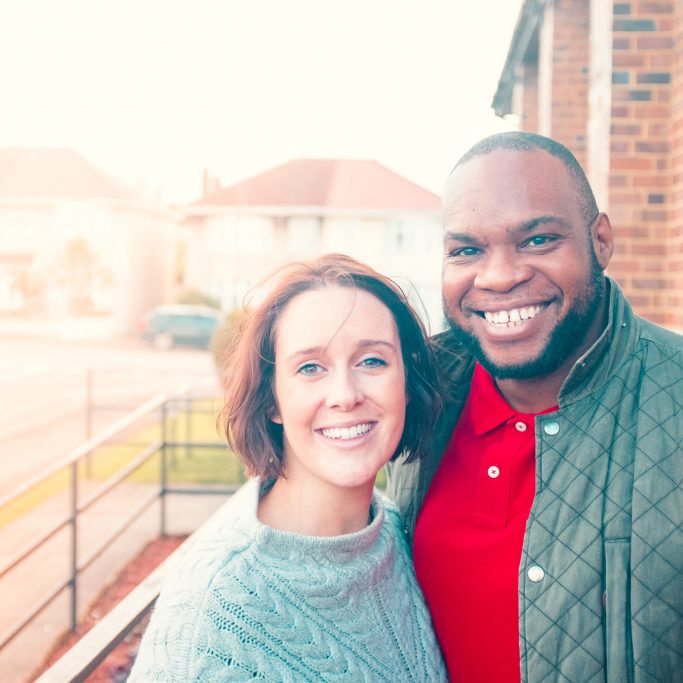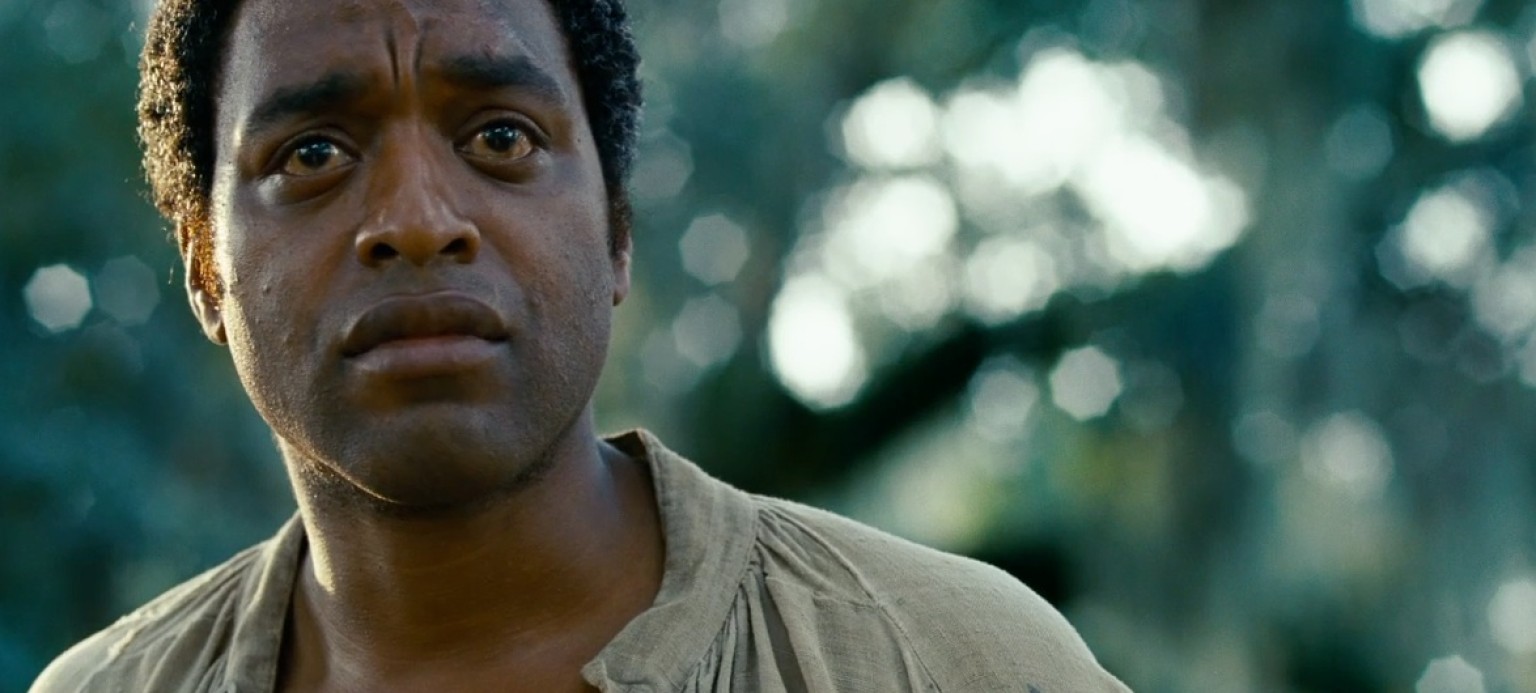It’s not often you love and hate a film in strong, but equal measure, but that was the feeling I had as I sat through the entire 2+ hours of 12 years a slave.
It probably seems rather ridiculous that I felt that way the whole way through but to be honest even in the car driving with my wife to the cinema there was a feeling of forboding and melancholy, mainly because I find it hard to watch films which depict the real ‘violence’ perpetrated by one group of humans towards another. I have felt the same about some war films particularly those depicting the Nazis which graphically illustrate what man can do to others to debase and take away freedom and advance selfish aims!
Interestingly when it’s a film about retribution culminating in victory, I somehow find it easier to watch as the films end with you metaphorically punching the air and rejoicing with the hero or heroine. The last two servings by Quintin Tarrantino (Inglorious & Django) while violent and to many, unsavoury in parts, they gave that overwhelming feeling of victory and justice at the end! However there was no such feeling as the dark years of Solomon Northrups’ life unravelled in 12 years a Slave!
12 years a slave is the story of Solomon Northrup, a free black man living in Saratoga New York, he has made a living and name for himself as an engineer. You are introduced to a man who has a lovely family life and is respected by his community! This all changes when he is tricked into going to Boston with two circus performers in order to play his fiddle while they perform, what transpires is that they have a dark malevolent plan in store!
The film then becomes one long painful doleful note being slowly and sadly pulled across a violin sting, plunging you deeper and deeper into the horrific physical, mental and spiritual experiences endured by slaves in the US.
I guess what really repeatedly thudded dully and painfully on my psyche was the way in which Solomon (and the other slaves) were stripped mercilessly of freedom, self-worth and justice. Not just that but the ultimate cognition that they had become utterly helpless against the wrongs and wickedness being perpetrated!
In so many of the slave books and films it emerges that much of this wickedness was executed with justifications out of the bible. We see the Slavers quoting scripture to justify their wickedness abs base desires. I think Tarrantino highlighted and explored this excellently, despite perhaps creating a caricature.
Nothing has changed…
While it’s now ‘illegal’ to have slaves and to deny people their freedom, many people still hold to a superiority worldview and while they would never dear articulate it, it runs through the fibres of their being and spills out into the way they live life and view people! It is a hideous thing when it is seen in Christians and at its most repugnant when seen in ‘Christian’ leaders.
A friend of mine studying at a ‘reformed’ Bible College in London recently bumped into a black student (a girl) who was weeping, when he asked her why she was crying she told him that one of the other students had said to her ‘I didn’t know they were allowing monkeys into this college’. What baffled me was my friends desire to quickly minimize what had been said rather than wonder whether this is indicative of something bigger that lies hidden beneath the surface of British evangelical Christian culture, a huge mental leap but hear me out.
A black assistant pastor of a large local evangelical church recently spoke of a church leaders meeting where they were discussing an issue relating to an African woman; he was asked could he deal with the issue ‘because she is one of yours’.
I went to a bible study group at a local church where all attendees we were asked to sit at specific tables to discuss the various topics. The ‘leader’ placed all the black people on one table ‘because they would probably understand each other’ – what was going on in his head! When I discussed him he shrugged it off as if it were nothing. I then spoke to the ‘senior’ pastor who thought it was funny!! When I discussed the pastor’s reaction with the director of missions for that church group he just said that the pastor was from a very white part of wales and he did not have experience. I didn’t realise the bible taught you need to experience another culture or ethnicity before you decide to treat them as equals or created in the image of God.
Another local pastor who is white but had a significant proportion of his congregation black told me of the church electing to run a leadership training course and the leaders being asked to draw up a list of who should go on it. He was shocked to see none of the black congregants on the list despite there being obvious choices, when he raised this he was met with opposition and hostility.
What fascinates me about many of the cases of racism in church is this: that white supremacy is so nuanced and threaded into the fabric of many people’s mind-sets that it’s not something you can easily pinpoint because the application of racism has been so skilfully and dare I say, unwittingly learned! But sit back and watch the interaction, watch what is said or how people black and ethnic minority people are related to and you see the tell signs, like an unwritten code of conduct.
I can only speak from my experience and many interactions I’ve had along the way, however many church leaders lament the obvious UK divide between ‘black church’ and ‘white church’ and you hear conversations about why it’s so sad that most evangelical churches in areas of mixed ethnic & socioeconomic class are not indicative of the population.
But here’s a thing, as soon as you ask “when did you last have a Polish, African, Caribbean, Asian, Somalian or just plain non-white person into your house to eat and drink and enjoys time with you?” the answer is usually the same, people want a mixed church but they don’t want a mixed life!
My wife is white and I am black, an inverse to Moses and Zipporah. She was discussing recently how she feels growing up she was instilled with a spirit of entitlement, she believes that it’s anintegralpart of white (middle class) culture and that the resulting arrogance that it breeds makes ‘one’ think that ‘one’ knows about other cultures better than people from those cultures and therefore is in a position to comment, advise and evaluate. I have now found that much research had gone into this this theory which is termed the illusion of Assymeteric insight, an undeniable phenomenon!
Over and over again you see church’s seeking to ‘evangelise’ (make people more like them) their communities rather than going and living among the people and tabernacling! Missional life is delivered as a program and not what we are; those whose lives reach out because of what the gospel has done to us and in us. Come to Alpha, come to Christianity Explored NOT we have so many people whose lives we are in and who want to know more, lets disciple and love them! Mission is a buzz word and for so many it’s something we do, for others it’s about going but it seems that for very few it’s about being.
I have had the privilege (not always seen it as a privilege) of experiencing a number of different churches for a sustained period of time and the sad thing is that most of them to one extent or another exhibited the white entitlement. From completely racist leadership to unwitting prejudice. It’s something I seldom saw growing up in a mixed church with a black pastor but it is something I’ve seen repeatedly in the evangelical circle which runs deep and wide and especially prevalent amongst certain tribes within it.
The issue is at its root a question of imago Dei: are all men created equally in the image of God? Many leaders of the evangelical church would say so but the reality is a million miles away. At least in the story of Solomon Northrup it was clear that the whites thought of the blacks as beasts, there was no ambiguity. If Northrup dared to say he was a free man he would be either not believed or worse whipped or even lynched.
There is an epic moment in the film when Northrup is on the plantation of William Ford and is ‘semi’ hanged for hours but survives, as he lays on the floor of Ford’s house he grabs his hand and tells Ford that he is a free man who was kidnapped and robbed of his freedom… You see the anguish in Ford’s face … He knows that this is no ordinary Negro… But the worldview dictates he cannot act differently. He’s a (potentially) good man who stands back and does nothing even though his has the power to do good.
And herein lies the problem, out and out racist are not the problem in the church (although I could guarantee they are there) the issue is good people who see bad practices, bad theology, bad worldview and do nothing to challenge! People who quote Galatians 3:28 about being one in Christ Jesus but have no desire whatsoever of living out the practical implications of what Paul is saying here. Year after year sermons are preached on John 4, but the counter cultural implications of a Jewish teacher sat at a well with an ‘unclean’ Samaritan woman and taking a drink from her is a step too far for much of the evangelical church!!
Frustratingly, when the final credits of the film are brought up we get a glimpse of what Solomon Northrup went on to do in campaigning for abolishment of the slave trade and the underground railway… But to me what is more telling is when the credits reveal that the kidnappers and slavers were never brought to justice despite in certain instances being brought to court! Sadly I fear that this is why the black church is not making strides at becoming a multicultural church; either because there is a fear that what is ingrained into a lot of white culture will never change and rather than trust God for the outcomes there is an entrenchment in staying in the comfort zone.
I wonder whether some of the black congregant who have decided to stay in white churches where obvious prejudice is occurring have taken the advice Northrop was given by another slave named Clemens:
“If you want to survive, do and say as little as possible. Tell no one who you really are and tell no one that you can read and write. Unless you want to be a dead nigger.”
That attitude and approach definitely doesn’t help so where does that leave us….
Much has been spoken about in the both within and without Christian circles about the West’s ‘assumed superiority’ and the legacy of white colonial mentality. Martin Luther King was famously quoted as saying that11 o’clock on Sunday morningwas the most segregated hour in Christian America.
Criticising and disassociating from patterns, or should I say approaches which have been the norm in British middle-class church life for centuries are not and will not be easy. But the only way change will happen is by starting to discuss debate and wrestle, accepting that what emerges will be incredibly painful, just like in many of the child sex abuse stories! Only then can whites and blacks together start intentional looking to a biblical, Jesus-exalting roadmap forward toward ridding church society of its inherent racism!
There is much that can be written about the approach of many black leaders and black churches regarding a lack of integration but there are far more qualified people in line to write that article, suffice to say on both sides of the fence there seems to be a distinct lack of a belief that we can move towards churches that reflect Rev 7:9, but I know the power of the gospel can change that. Fact.
I believe it was Nelson Mandela who said ‘it always seems impossible till it’s done’.
Food for thought…










